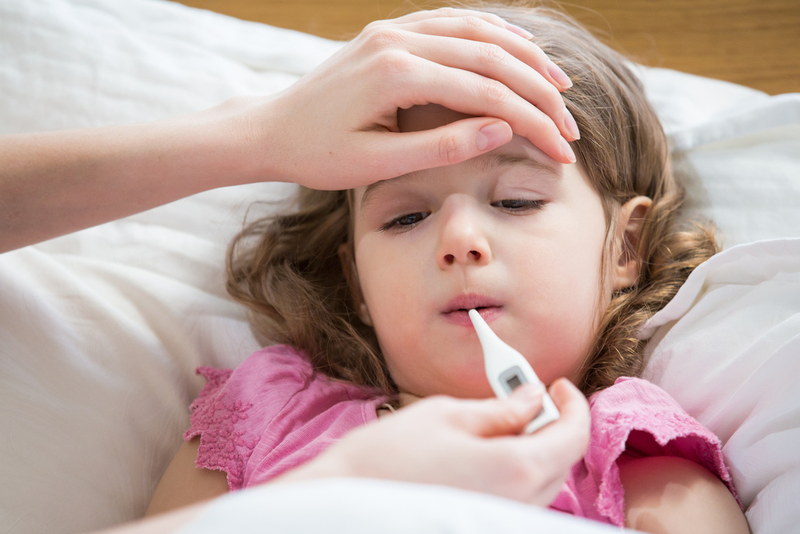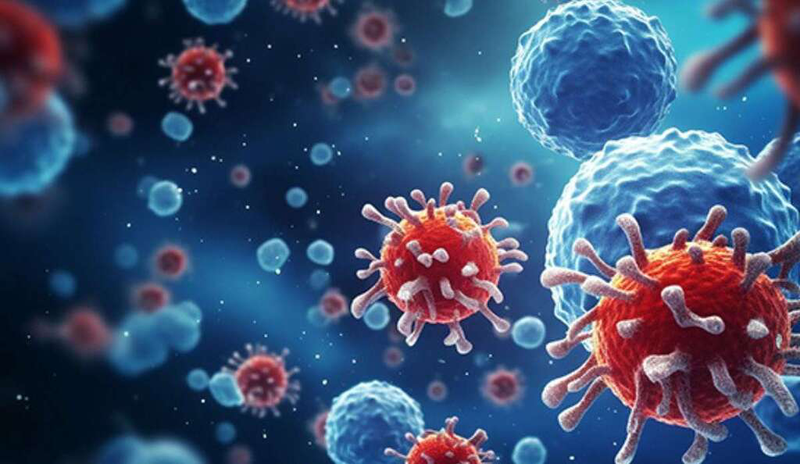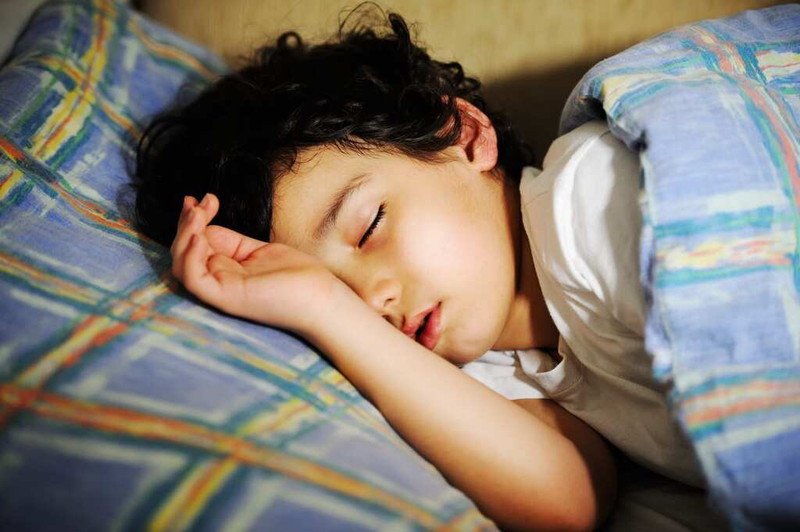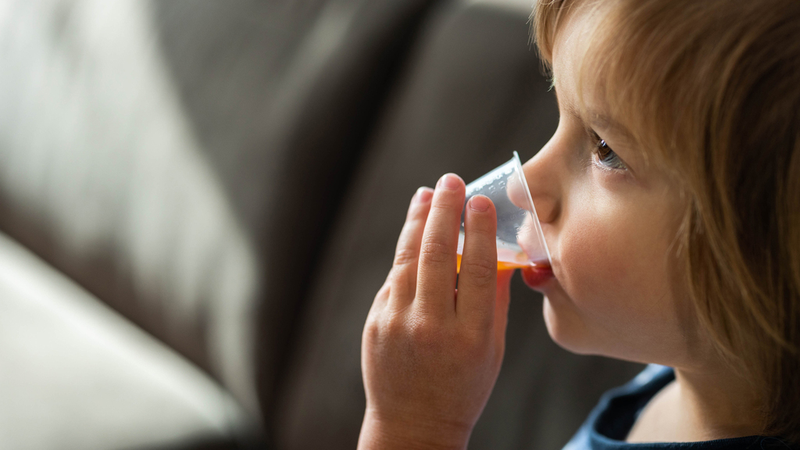Children with post-fever nerve irritation is a very common health condition in children under 5 years old. This phenomenon is often considered a consequence of the impact on the nervous system during the period when the child has a high fever. This article will explore the causes and how to deal with this condition when the child experiences it.
Fever is a sign that the body is reacting against pathogens that attack the body. Prolonged high fever can have a negative impact on the patient’s health, especially young children. So is post-fever nerve irritation dangerous? How should we deal with the case of children with post-fever nerve irritation? Let’s find out with Long Chau Pharmacy!
Learn about fever in children
Fever is a condition in which the body temperature increases higher than the average body temperature (36 – 37 degrees Celsius). Specifically, the temperature measured at different locations on the body when having a fever is as follows:
- Rectal temperature: > 100.4 degrees F (38 degrees C);
- Oral temperature: > 99.5 degrees F (37.5 degrees C);
- Axillary temperature: > 99 degrees F (37.2 degrees C);
- Ear temperature: > 100.4 degrees F (38 degrees C).
Fever is a sign that the body is reacting to agents that cause damage, inflammation, etc. If a child has a fever for less than 7 days, it is often called an acute fever. Some causes of acute fever in children include:
- Respiratory virus infection;
- Digestive tract infection;
- Infection caused by bacteria and viruses.

Fever is one of the most common health conditions in children.
What causes children to have nervous stimulation after a fever?
Children with nervous stimulation after a fever is an abnormal emotional and behavioral condition after experiencing a high fever. This is a relatively common phenomenon in children, especially in children under 5 years old. The condition of children with nervous stimulation after a fever occurs when the child’s nervous system is affected by high body temperature, leading to neurological dysfunction.
After a high fever, children may show signs of anxiety, agitation, difficulty sleeping, and even seizures. This phenomenon may disappear after the child’s body temperature returns to normal. However, if not treated properly and promptly, the child’s health can be seriously affected, even leaving serious consequences later. So what causes children with nervous stimulation after a fever?
According to experts, the condition of children after fever causing nervous stimulation can originate from many causes, including:
- Infection: Infection caused by viruses or bacteria is the main cause of fever in children. When the body reacts to infection, the body temperature will increase and can cause stimulation to the child’s central nervous system. This causes symptoms such as constant crying, convulsions or delirium.
- Side effects of antipyretics: Some antipyretics can cause side effects that affect the nervous system of young children. This often happens when parents give their children an overdose of antipyretics.
- Dehydration and electrolytes: High fever will cause the child’s body to quickly lose water and electrolytes. If the imbalance of water and electrolytes in the body is not compensated in time, it can affect the functioning of the nervous system, leading to nervous stimulation.

Viral infections are the main cause of fever in children.
How to handle children with nervous stimulation after fever
Parents need to know how to handle children with nervous stimulation after fever to minimize possible dangerous complications. Specifically, parents need to:
- Take children to a quiet and cool place: Parents need to avoid letting children with nervous stimulation after fever come into contact with environments with strong light, noise or high temperatures. Instead, parents should take their children to a quiet and cool place to help them feel more comfortable and at ease.
- Check body temperature and reduce fever: Parents should check their child’s body temperature with a thermometer. If the child’s body temperature is still high, physical fever reduction measures can be applied such as giving the child plenty of water, wiping the child with warm water or giving the child fever-reducing medicine as prescribed by the doctor.
- Keep the child calm: Mothers should hug, gently pat and talk to the child to help the child calm down and feel safe. Absolutely do not scold or do anything that scares the child to avoid making the child’s stimulation worse.
- Do not use drugs on your own: If the child has serious symptoms or convulsions, parents need to take the child to the hospital immediately. Absolutely do not give the child sedatives or any other drugs without the consent of a doctor.
In addition, parents need to quickly take the child after the fever causes nervous stimulation to the nearest medical facility for timely treatment if the child has symptoms such as:
- Convulsions;
- High fever for more than 3 days;
- Difficulty breathing;
- Loss of consciousness;
- Continuous vomiting;
- Refusing to breastfeed or difficulty eating…

Children with fever and nervous system irritation need to rest in a quiet place.
Preventive measures for children after fever causing nervous irritation
To effectively prevent the risk of children after high fever causing nervous irritation, parents should take the following measures when the child shows signs of fever:
- Let the child rest in a quiet, well-ventilated place, without drafts.
- Regularly check the child’s temperature. It is best to check the child’s body temperature in the anus or armpit. If the child’s body temperature is below 38 degrees Celsius, parents should loosen the child’s clothes and not cover the child with a blanket, then check the child’s body temperature once an hour. If the child’s body temperature is between 38 – 38.5 degrees Celsius, apply a warm compress or wipe the child’s body with warm water to reduce the fever. If the child’s body temperature is above 38.5 degrees Celsius, give the child paracetamol to reduce the fever according to the recommended dose or a rectal suppository to reduce the fever if the child cannot take the fever-reducing medicine.
- Actively give your child filtered water or electrolyte water mixed in the correct amount according to the manufacturer’s instructions to avoid the risk of dehydration and electrolyte loss when having a fever.
- Give your child liquid, soft, easily digestible foods and drink more fruit juice.
- Take your child to see a specialist if he or she has a high fever for 3 consecutive days, is fussy, refuses to breastfeed, has a fever with convulsions, rashes, etc.

Children should be given fever-reducing medication as directed by a doctor if their fever is above 38.5 degrees Celsius.
In summary, children with post-fever nerve irritation need to be treated and cared for properly to ensure their health as well as prevent possible complications. Parents should take their children to the hospital as soon as possible for timely treatment if the post-fever nerve irritation becomes serious.





